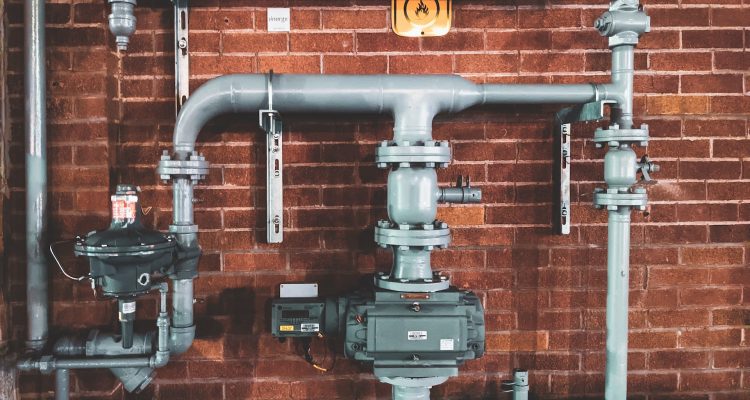
When you encounter a plumbing emergency, it is important to remain calm. That will help you think clearly and minimize damage.
Whether you have a major leak or sewage back up, these emergencies can be dangerous for your family and pets and need to be addressed immediately. The first step is to turn off the water supply. Look for the valve behind or at the base of your toilet.
Turn off the Water
We rely on indoor plumbing for many tasks, but disasters like burst pipes and major water leaks can cause substantial damage in minutes. Water damage can lead to costly repairs and mold growth. It can also pose health risks and disrupt your daily routine.
A lack of running water in your home is an obvious sign that there’s a problem, but other warning signs include strange gurgling or banging sounds coming from the plumbing, which may indicate excess pressure, air in the lines, or other underlying issues that need immediate attention.
Water emergencies are stressful, but they’re not always catastrophic. If you know what to look out for and how to react quickly, you can minimize damage and prevent costly repairs.
The first thing you should do in a plumbing emergency is turn off the water. This will help to slow the flow of water and protect your home from further damage. Shutting off the water will also make it easier for emergency plumbers to access your pipes and perform necessary repairs.
In most cases, you can turn off the water by finding your home’s shut-off valve and turning it clockwise. It’s important that all household members know where the water valve is located and how to turn it off in an emergency.
If you can’t locate your water shut-off valve, try opening your faucets and drains to relieve pressure and let some of the water escape. You can also try to contain the problem by using towels and buckets to soak up the excess water.
It’s also a good idea to turn off your water heater in the event of an emergency. This will help to prevent heat from building up inside the tank, which could cause it to rupture or explode.
In addition to your home’s main water valve, you might have individual shut-off valves for your appliances. If you’re unsure where these are located, refer to the owner’s manual or contact your local utility company for assistance. If you have gas-powered appliances, it’s also a good idea to learn how to shut off the gas.
Turn off the Sewer

Sewer line backups are one of the most unpleasant and potentially dangerous plumbing disasters you can face. Whether it’s caused by a blockage or severe storm damage, it can create a mess in your home and expose your family to bacteria and toxins. If you notice sewage back up through your home drains, immediately shut off all water flow to the house and turn off electricity until a plumber can arrive. Blocked drains are problematic if not solved as early as possible.
It’s important to remember that sewage contains deadly bacteria, including E coli and Salmonella. It can also emit harmful toxins in the form of gas and fumes that can cause gastroenteritis and asthma-like symptoms. Exposure to sewage is also hazardous to your pets and wildlife. If you can safely do so, remove all contaminated items and store them away from your living areas.
While you’re waiting for a plumber, it’s a good idea to stock up on bottled water. This will ensure that you have a supply of clean drinking water in the event that you’re unable to use your plumbing system for an extended period of time.
In the summer, heavy rains can overburden city sewer systems and cause sewage to back up into homes. If you suspect a sewer backup, check your floor drains to see if they’re draining slowly. If they are, it’s likely that your septic tank is overflowing and needs to be serviced.
Aside from storms, a common cause of sewage backups is the buildup of grease in pipes. This can happen when you flush items like paper towels, single-use wipes and food scraps down your drains. Over time, this can block your pipes and cause a clog or even a break.
Regular inspections and maintenance are the best ways to prevent this kind of damage to your plumbing systems. Keeping your system properly maintained can help you avoid costly repairs down the road and keep it functioning smoothly for years to come.
Call a Plumber
Plumbing emergencies are never convenient and they can often strike in the middle of the night, on a weekend, or when you’re on vacation. When they do, it’s important to stay calm and take the right steps to minimize damage and keep your family safe.
If you’re dealing with a water leak or a flood, the first step is to shut off your home’s main water valve. Locate it and turn it clockwise to stop the flow of water. Next, call a plumber right away to assess the situation and make repairs as needed. In the meantime, you can try to contain the water by placing buckets in high-traffic areas of your home and stuffing towels around sinks or appliances that are prone to flooding.
Another common plumbing emergency is a clogged drain or sewer backup. These can be difficult to deal with and may require professional help. To prevent this, always use a non-toxic drain cleaner and be sure to schedule regular maintenance visits with a trusted plumber to catch problems before they escalate.
Whatever the cause of your emergency, a plumber will be able to provide prompt assistance and expert repairs. Be sure to choose a reputable plumber that offers 24/7 emergency services and has an excellent reputation in the community. Also, look for a plumber that is licensed, insured, and certified to work on residential properties in your area. This will ensure you receive quality service and peace of mind.
